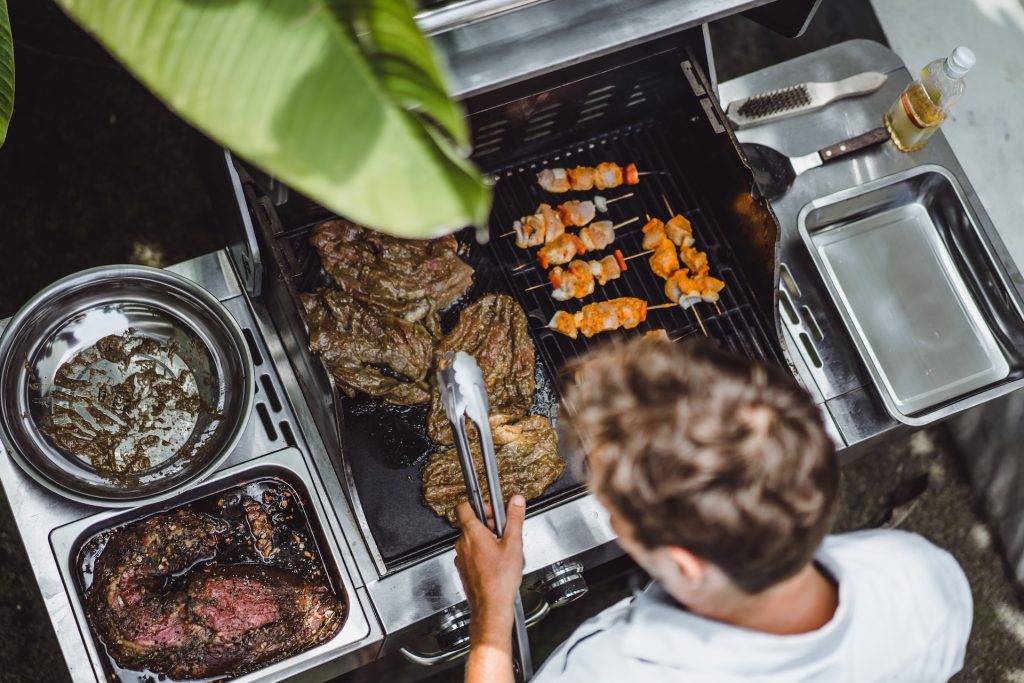
The Ultimate Guide to Grills for Vacation Rentals And How to Keep Them Ready for Guests
Quality grills often command higher nightly rates and improve booking frequency. Many guests specifically search for properties with outdoor cooking facilities, particularly during summer months and in destination markets.
Outdoor grilling is often a highlight of vacation experiences, transforming simple meals into memorable gatherings. For vacation rental owners, providing a quality grill can significantly enhance guest satisfaction and set your property apart from competitors. However, choosing the right grill and maintaining it properly requires careful consideration of durability, safety, and guest convenience.
Understanding Your Grill Options
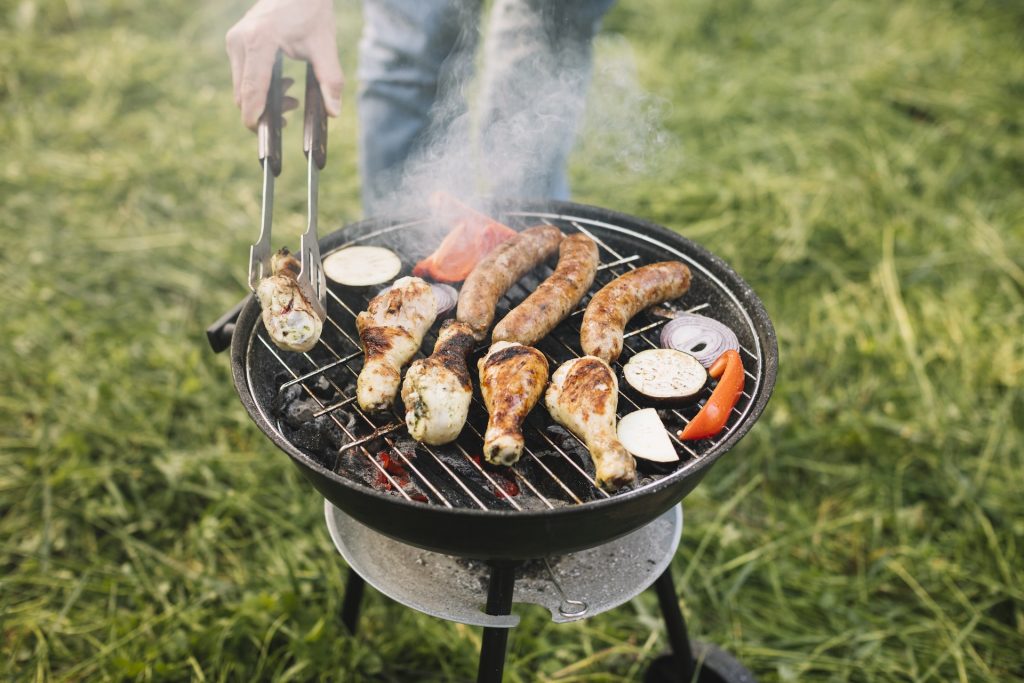
Gas Grills: The Guest-Friendly Choice
Gas grills represent the most popular choice for vacation rentals, and for good reason. They offer instant ignition, precise temperature control, and minimal learning curve for guests unfamiliar with the equipment. The convenience factor cannot be overstated, guests can start cooking within minutes of arriving at your property.
When selecting a gas grill, prioritize models with multiple burners for versatility and even heat distribution. Stainless steel construction resists corrosion from coastal salt air and frequent cleaning, making it ideal for rental properties. Look for grills with built-in temperature gauges, side tables for food preparation, and enclosed storage compartments for propane tanks and accessories.
Charcoal Grills: For the Authentic Experience
Charcoal grills appeal to guests who enjoy the traditional grilling experience and smoky flavor that only charcoal can provide. These grills are typically more affordable than gas alternatives and have fewer mechanical components that can malfunction.
Kettle-style charcoal grills offer excellent heat retention and are impressively durable. For larger properties or groups, consider barrel-style charcoal grills that provide more cooking surface. The main considerations with charcoal grills include longer preparation time, temperature control challenges for inexperienced users, and ash cleanup requirements.
Electric Grills: The Low-Maintenance Solution
Electric grills work well for properties with strict fire regulations or limited outdoor space. They’re particularly suitable for balcony settings in condominiums or apartments where gas and charcoal may be prohibited. Modern electric grills can achieve surprisingly high temperatures and offer consistent performance.
The primary advantages include easy cleanup, no fuel storage requirements, and safe operation for less experienced users. However, they require proximity to electrical outlets and may not satisfy guests seeking that authentic grilled flavor.
Pellet Grills: The Technology-Forward Option
Pellet grills combine the convenience of gas with the flavor enhancement of wood smoke. These grills use compressed wood pellets as fuel and offer precise temperature control through digital interfaces. They excel at both grilling and smoking, providing versatility that appeals to cooking enthusiasts.
While pellet grills require higher initial investment and regular pellet supply, they offer set-and-forget convenience that many guests appreciate. The consistent temperature control makes them forgiving for inexperienced grillers while still satisfying more advanced users.
Learn more about listing with Whimstay
Essential Features for Rental Property Grills
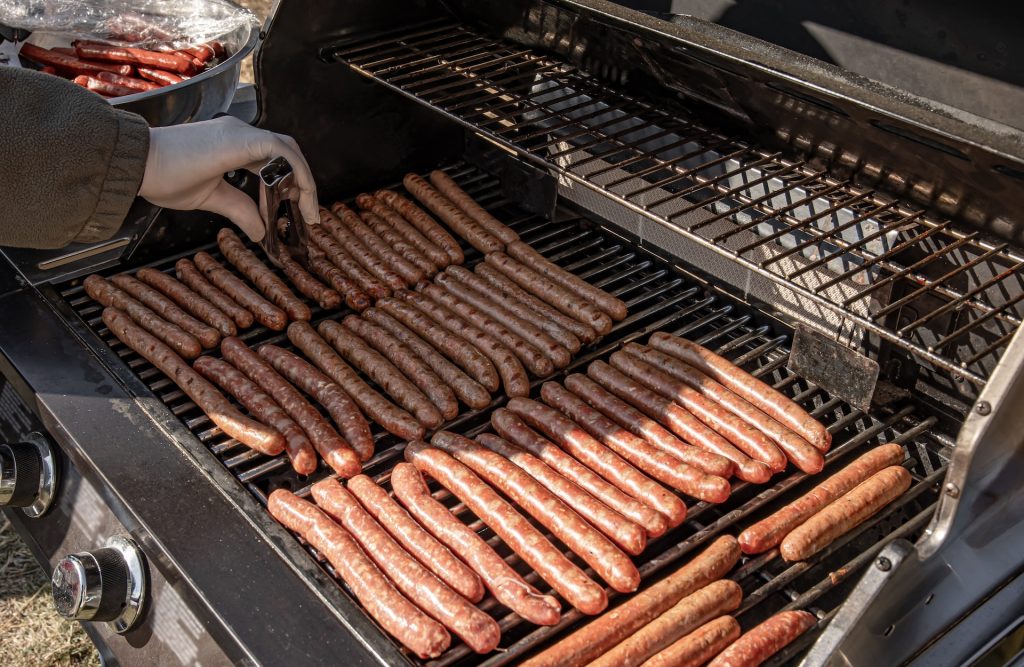
Durability and Weather Resistance
Vacation rental grills face constant exposure to weather elements and frequent use by different guests with varying skill levels. Stainless steel construction provides the best longevity, though powder-coated steel can offer good value for budget-conscious owners. Ensure all hardware, including hinges and handles, uses corrosion-resistant materials.
Weather-resistant features become crucial for properties in coastal areas or regions with harsh winters. Look for grills with sealed electrical components, rust-resistant grates, and protective coatings that withstand salt air and moisture.
Size and Capacity Considerations
Match your grill size to your property’s typical guest count. A standard four-burner gas grill accommodates most families and small groups, while larger properties hosting eight or more guests benefit from expanded cooking surfaces or multiple smaller grills.
Consider the available outdoor space when selecting grill dimensions. Ensure adequate clearance from structures, railings, and combustible materials. Many local fire codes specify minimum distances that must be maintained.
Safety Features
Safety becomes paramount when strangers regularly use your equipment. Look for grills with automatic shutoff mechanisms, secure propane connections, and stable construction that won’t tip easily. Some gas grills include safety features like flame tamers that reduce flare-ups and protect guests from unexpected flames.
Temperature monitoring systems help prevent overheating, while locking mechanisms on propane tank compartments ensure proper storage and prevent tampering.
Learn more about Whimstay’s host referral program
Maintenance and Preparation Strategies
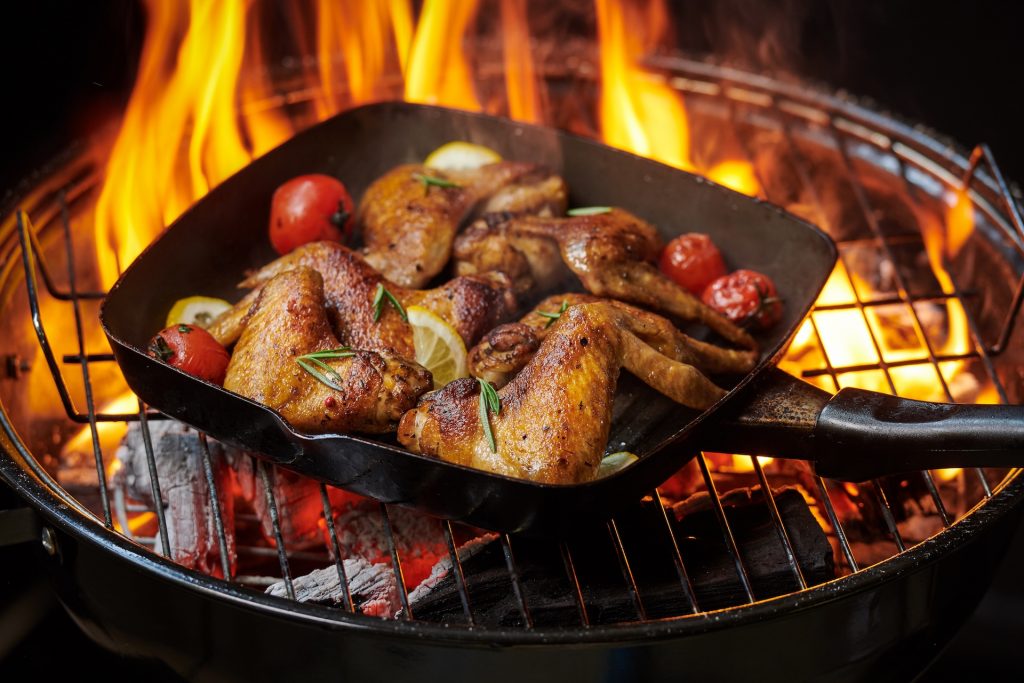
Pre-Guest Preparation Checklist
Develop a systematic approach to preparing your grill between guests. Start with a thorough cleaning of all cooking surfaces, removing grease buildup and food residue that could affect taste or cause flare-ups. Clean and organize any included accessories, ensuring all pieces are present and functional.
For gas grills, check propane levels and connections for leaks using soapy water. Replace empty tanks and ensure backup propane is available. Verify that all burners ignite properly and maintain consistent flames across the cooking surface.
Test all mechanical components including handles, hinges, and temperature gauges. Replace any worn or damaged parts immediately, as these small issues can quickly escalate into guest complaints or safety hazards.
Deep Cleaning Procedures
Monthly deep cleaning extends grill life and maintains guest satisfaction. Remove cooking grates and heat plates for thorough scrubbing with appropriate cleaners. Stainless steel surfaces require specific cleaners to maintain their appearance and prevent damage.
Clean the interior thoroughly, removing grease from drip pans and ensuring proper drainage. Blocked grease management systems create fire hazards and unpleasant odors that will negatively impact guest experiences.
For charcoal grills, remove all ash and debris from the firebox. Check air vents for obstructions that could affect airflow and temperature control. Clean ash catchers and ensure they’re properly secured.
Seasonal Maintenance Tasks
Seasonal maintenance prevents major repairs and extends equipment life. Before peak seasons, conduct comprehensive inspections of all components. Replace worn cooking grates, clean and lubricate moving parts, and test all gas connections with professional leak detection.
Check manufacturer warranties and service recommendations. Many grill manufacturers offer seasonal maintenance guides specific to their products. Following these guidelines often preserves warranty coverage and prevents premature failures.
In regions with harsh winters, consider protective measures like weatherproof covers or temporary storage in protected areas. Remove propane tanks and store them properly according to local regulations.
Guest Education and Communication
Clear instructions help guests use your grill safely and effectively. Create laminated instruction cards covering basic operation, safety procedures, and emergency contacts. Include pictures showing proper lighting procedures and temperature settings for common foods.
Consider creating brief video demonstrations available through QR codes or your property’s guest information system. Visual instructions often prove more effective than written guides, especially for complex equipment like pellet grills.
Provide contact information for immediate assistance with grill issues. Many guest complaints stem from simple problems that quick phone guidance can resolve, preventing negative reviews and ensuring positive experiences.
Safety and Legal Considerations
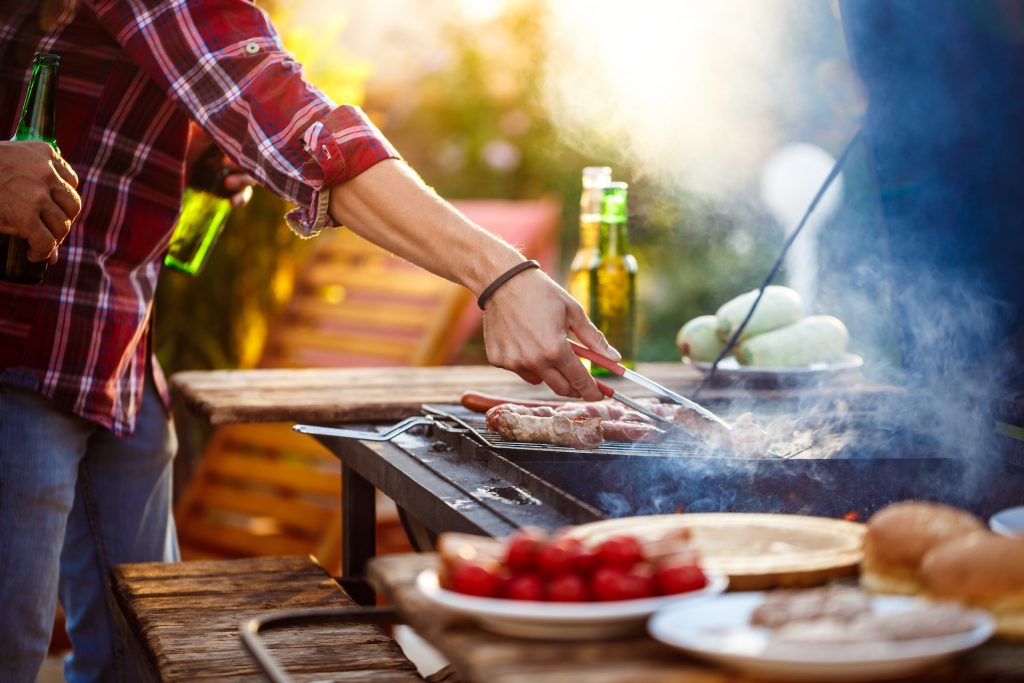
Insurance and Liability Issues
Review your property insurance policy regarding guest use of grills and outdoor cooking equipment. Some policies require specific safety measures or exclude coverage for certain grill types. Notify your insurance provider about your grill installation to ensure adequate coverage.
Consider liability implications of providing cooking equipment to guests. While most standard vacation rental insurance covers normal guest activities, extreme incidents could pose challenges. Document your safety measures and maintenance procedures to demonstrate reasonable care.
Local Regulations and Permits
Many municipalities regulate outdoor cooking equipment in rental properties. Fire departments often require permits for gas grills or specify installation requirements. Homeowner associations may restrict grill types or placement locations.
Research local fire codes regarding clearances from structures, storage of fuel, and emergency access requirements. Some coastal areas have specific regulations about grills near saltwater or in high-wind zones.
Obtain necessary permits before installation and schedule required inspections. Compliance with local regulations protects both your property and guests while avoiding potential fines or forced equipment removal.
Choosing a Grill For Your Vacation Rental
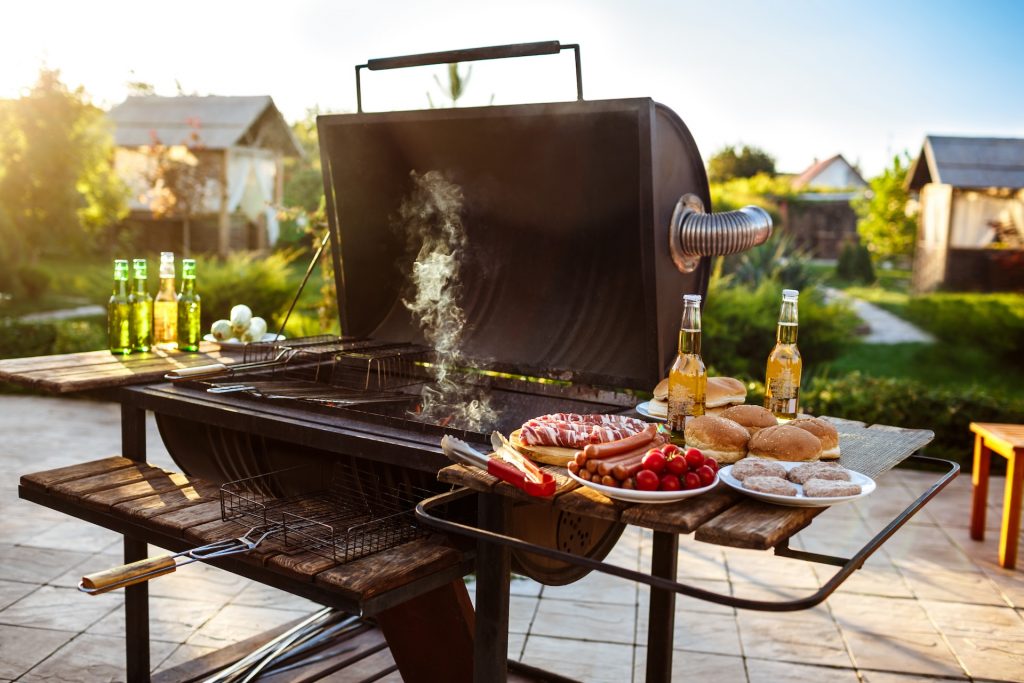
The right grill choice balances guest expectations, safety, maintenance, and budget. While gas grills offer the best convenience for most properties, charcoal appeals to authenticity seekers, and electric or pellet grills serve specific needs.
Success hinges on consistent maintenance, clear guest communication, and safety attention. Quality grilling facilities typically deliver improved satisfaction, higher booking rates, and premium pricing. With proper care and strategic selection, your grill becomes a valued amenity that enhances guest experiences while protecting your investment.
Learn more about listing with Whimstay
+ Articles:
 Download
Download 